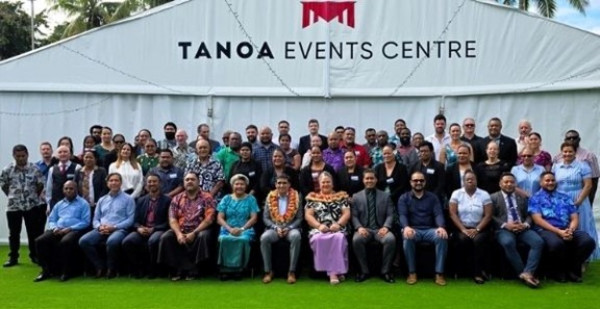The Pacific Regional Quality Policy workshop – setting a roadmap to lift standards for industries across the Pacific Islands
The Government of Fiji hosted the Pacific Regional Quality Policy (PRQP) workshop in May, bringing together leaders, experts, and policymakers from across the Pacific to set a roadmap for regional quality infrastructure to improve trade, safety, and life for over 10 million Pacific Islanders.

The event marked a significant step toward the development of a unified approach to standards and quality infrastructure that replaces the fragmented, country-by-country model that has long posed challenges for Pacific Island nations, in particular the smallest ones.
A regional vision for quality and trade
The conference focused on the power of regional collaboration to overcome the limitations of small-scale economies. For many Pacific nations, maintaining individual laboratories and certification bodies is neither practical nor sustainable. The proposed PRQP aims to pool resources - an example may be establishing a single regional lab instead of duplicating efforts across multiple islands or where they may be required to send products to southeast Asia for expensive testing - creating economies of scale and enhancing efficiency.
The week-long event was described as “weaving the threads of quality infrastructure together,” encompassing everything from standards and technical regulations to metrology, testing, certification, inspection, and accreditation. These components are essential for building trust in Pacific Island products and services, especially in export markets.
Impactful examples discussed during the week demonstrating the value of having credible quality infrastructure included the early 2000s ban on kava exports to the EU. The lack of recognised quality standards and inspection led to the abrupt loss of income for Pacific farmers and communities. This highlighted the critical need for internationally recognised quality systems to ensure product safety and international market access.
Standards New Zealand’s presence underscored the important role New Zealand and Australia play as bridges between international standards bodies like International Organization for Standardization (ISO) and International Electrotechnical Organisation (IEC) and the Pacific region and helping ensure that Pacific voices are heard and respected on the world stage.
Conference themes and outcomes
The event was structured around three key themes:
- Where are we now? – A needs assessment and current state of quality infrastructure.
- Where are we going? – Exploring the components of a robust quality system.
- Strategic Vision – Outlining a five-year roadmap for regional quality infrastructure development.
The week featured insights from United Nations Industrial Development Organisation (UNIDO) representatives, who shared successful regionalisation models from the Caribbean (CROSQ) and African Union. These examples demonstrated how shared infrastructure and knowledge exchange can build critical mass and expertise in quality systems.
The bigger picture
The PRQP is about economic empowerment and how quality infrastructure underpins trade competitiveness, market access, and ultimately, the health, safety, and prosperity of Pacific communities. While for some Pacific nations, this journey is just beginning, the PRQP solidifies a regional commitment to leave no one behind and see that the value of standards and conformance is felt by everyone.
The gathering also allowed for the 12th Pacific Islands Standards Committee (PISC) meeting to be had in person. This was also the final meeting chaired by Djamil Abdelaziz from Caledonia who has led the PISC since 2022, including during the Standards New Zealand hosted Pacific Islands Standards Week in August 2024. With no successor named yet, the work and agreed actions will continue.
Looking ahead
The next steps in the PRQP journey include:
- Workshop and draft agreement in September 2025.
- Presentation to the Forum Trade Officials for endorsement.
- Final approval by the Forum Trade Ministers in 2026.
